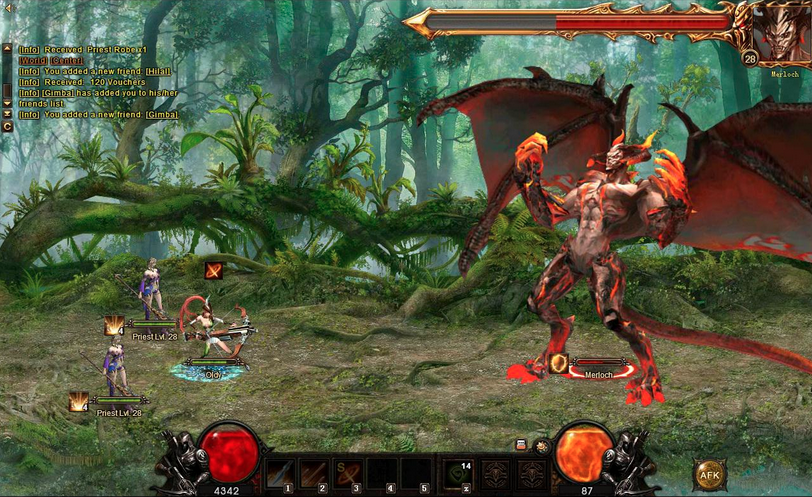
We’ve asked leaders of effective non-profits whether it makes sense to start your career in the non-profit sector. They said you can usually advance faster in the corporate sector because you get better training, and that’s where they hire from.
Kate ended up returning to the corporate sector for several years, and would have ended up ahead if she’d done that straight away. We know lots of examples of people who feel like they wasted years of their career.
Don’t make these mistakes. Although it’s good to make a difference right away, you also need to invest in yourself to maximise your impact in the long-term. This means building what we call “career capital”: skills, connections and credentials that put you in a better position to make a difference in the future.
Furthermore, it’s important to build career capital that’s flexible – that will be relevant in many different jobs in the future as technology changes. This prevents you from getting stuck in a dead end, especially early in your career.
By building career capital and being strategic, there’s a huge amount anyone can do to put themselves in a better position to have a satisfying career and make a difference.
Reading time: 15 minutes.
The bottom line
Career capital is anything that puts you in a better position to make a difference in the future, including skills, connections, credentials and runway.
Gaining career capital is important throughout your career, but especially when you’re young and you have a lot to learn.
The earlier you are in your career, and the less certain you are about what to do in the medium-term, the more you should focus on gaining career capital that’s flexible i.e. useful in many different sectors and career paths.
Some of the best ways to gain career capital early on include:
- Working in any organisation which has, or with any people who have, a reputation for high performance e.g. top consultancy or technology firms, or any work with a great mentor or team.
- Undertaking certain graduate studies, especially applied quantitative subjects like economics, computer science and applied mathematics.
- Anything that gives you a valuable transferable skill e.g. programming, data science, marketing.
- Taking opportunities which allow you to achieve impressive and socially valuable things e.g. founding an organisation, doing anything at which you might excel.
Mistake 1: Ignoring opportunities to invest in yourself
If you want to increase your social impact, you face a choice: try to make a difference right away, or invest in yourself to make a greater impact in the long-term. Which is best?
This is a complex question (and you can see more of our research here) but we think many people should focus on investing in themselves early in their career. Why?
People like to lionise the Mozarts and Mark Zuckerbergs of the world – people who achieved great success while young – and there are all sorts of awards for young leaders, like the Forbes 30 under 30. But these stories are interesting precisely because they’re the exception. If you want to get your dream job, then you’ll probably need to invest in yourself first.
Most people reach the peak of their impact in their middle age. Income usually peaks in the 40s, suggesting that it takes around 20 years for most people to reach their peak productivity.2 Similarly, experts only reach their peak abilities between age 30 to 60,3 and if anything, this age is increasing over time.4
| Field | Age of peak output |
|---|---|
| Theoretical physics, lyric poetry, pure mathematics | Around 30 |
| Psychology, chemistry | Around 40 |
| Novel writing, history, philosophy, medicine | Around 50 |
| Business - average age of S&P500 CEOs | 55 |
| Politics - average age of first-term (US) president | 55 |
I have never found a convincing case for anyone developing extraordinary abilities without intense, extended practice.Mozart and Zuckerberg succeeded while young because they started young. Mozart’s father was a famous music teacher, and trained him intensely as a toddler.
All this may sound like a bit of a downer: being successful takes time. But consider the flip side: you can improve.
Lots of people come to us saying “I’m not sure I have any useful skills to contribute”. And that’s often true. If you’ve just graduated, you’ve probably spent the last four years studying Moby Dick, quantum mechanics, and Descartes, and your future job is unlikely to involve any of those things.
However, Ericsson’s research suggests that anyone can improve at many skills with focused practice. Sure, talent is important too – if you’re 7-foot-tall it’s going to be a lot easier to get good at basketball – but that doesn’t mean short people can’t still improve their game. This means even if you don’t feel you have much to contribute now, you can become much more skilled in the future, and probably keep improving for decades.
In our advising, we’ve seen lots of examples of people becoming far more successful, happy and capable by investing in themselves, often in surprising areas that they never thought they’d be good at. We’ll cover some examples later.
All this means there’s a good chance you can have a greater lifetime impact by first investing in yourself. For this reason, our advice is to always be on the lookout for opportunities to build career capital. As we’ve just seen, people keep increasing their career capital into their 40s and 50s.
However, career capital is especially important early in your career: the earlier you increase your abilities, the more time you have to make use of the increase, and the larger the total gain you’ll get. So, early career, the ideal is to find a job that offers both impact and career capital, but if forced to choose between the two, lean towards career capital.
This doesn’t mean ignoring social impact – it’s best to stay involved through volunteering, conferences, donating 1-10%, and so on, so you stay motivated and keep learning. And if you come across an especially good opportunity for impact, then it might be better to focus on that. Rather, the question is where to put your focus most of the time.
(Advanced: exactly how to balance helping now with investing in yourself to help later is a complex question that ultimately depends on which problems you think are most pressing – we’ve done a more in-depth analysis here.)
How to compare two options in terms of career capital
Here’s a bit more detail on what to look for:
Skills – what will you learn in this job, and how fast will you learn? You can break skills down into transferable skills, knowledge and personality traits. Some especially useful transferable skills include: personal productivity, analysis and problem-solving, the ability to learn quickly, decision-making, social skills, and management. We cover why and how to learn them in a later article. If you want to do good, you also need to learn all about the world’s most pressing problems and how to solve them. A job will be best for learning when you are pushed to improve and get lots of feedback from mentors.
Connections – who will you work with and meet in this job? Your connections are how you’ll find opportunities, spread ideas and start new projects. The people you spend time with also shape your character. For both reasons, it’s important to make connections who are influential and who care about social impact.
Credentials – will this job act as a good signal to future collaborators or employers? Note that we don’t just mean formal credentials like having a law degree, but also your achievements and reputation. If you’re a writer, it’s the quality of your blog. If you’re a coder, it’s your GitHub.
Runway – how much money will you save in this job? Your runway is how long you could comfortably live with no income. It depends on both your savings and how much you could reduce your expenses by. We recommend aiming for at least six months of runway to maintain your financial security. 12-18 months of runway is even more useful because it gives you the flexibility to make a major career change. It’s usually worth paying down high-interest debt before donating more than 1% per year or taking a big pay cut for greater impact.
Mistake 2: Not building flexible career capital that will be useful in the future.
So we’ve seen that career capital is important, especially early career, but what type of career capital should you look to gain?
Earlier we saw the example of Kate, who went to work at a non-profit. Not only do non-profit jobs often build your skills more slowly, they’re also less flexible. It’s widely accepted in the non-profit sector that it’s easier to switch from a business job to a non-profit job than vice versa. So if you’re unsure between the two, a business position offers more flexibility.
Another cautionary tale is Topher, who was studying a philosophy PhD, but realised that he probably wouldn’t get any academic positions that he was excited to pursue, and so left early and had to retrain. We’ve found lots of people start a PhD and then realise that they hate academia, and that their PhD won’t help them much elsewhere. They end up feeling like they’ve near-wasted four years.
Tara trained and worked as a pharmacist with the Red Cross. Eventually she realised that she could have a greater impact elsewhere, but all the specialised knowledge she learned in pharmacy would no longer be useful. This is common when people choose specialised courses that are only really relevant to one path.
“If I hadn't encountered 80,000 Hours' website, there's no way I'd be in the job I am today.”

Flexibility is important firstly because it’s really hard to know what the future holds. Many of the most in-demand jobs today, like being a data scientist or growth hacker, didn’t even exist ten years ago. And it seems like the pace of change is going to be even faster in the coming decades.
Thinking of becoming a legal clerk, medical technician, or real estate broker? These jobs might soon be gone. Several decades ago, Chess was held up as an example of something a machine could never do. But in 1997, Kasparov was defeated by the computer program Deep Blue. Back in 2004, two experts in artificial intelligence used truck driving as an example of a job that would be really hard to automate.6 Today, self-driving cars are already on the road. Back in 2014, Nick Bostrom predicted that it would take ten years for a computer to beat the top human player at the ancient Chinese game of Go. But it was achieved in March 2016 by Google DeepMind.7
The safest jobs are those that involve creativity, high level problem solving, and social intelligence, such as: management, marketing, social work, and engineering.

These changes are not only limited to the technology sector; they’re happening everywhere. JK Rowling became one of the highest earning authors of all time because Harry Potter became popular all around the world. This means the importance of building good career capital is increasing over time.

Flexibility is even more important if you care about social impact, because it allows you to focus on whichever problems turn out to be most pressing in the future. In the 1960s, the big issue was nuclear war and hardly anyone had heard about climate change, whereas today climate change is widely seen as the bigger issue.

In general, the more uncertain you are about the future and your career, the more important it is to gain career capital that’s flexible. One consequence of this is that flexibility is usually most important at the start of your career. At this point you haven’t tried any jobs, so it’s the point when you know the least about what you want to do in the future.
If you’re really uncertain, then you could make flexible career capital your main focus. As you learn more, you can make your plan more and more targeted. (We’ll cover how to do this in a later article.)
Bear in mind, the advice “build flexible career capital” is not the same as “don’t close any doors”. Some people try to avoid committing to a specific path because they’re unsure what to do. Rather, the advice is to commit to a path in which you’ll gain career capital that’s useful in many other paths. Just pick an area, perform highly, learn valuable skills, and meet influential people. You’ll end up in a better position than if you try to do a bit of everything and don’t achieve anything.
Which jobs are best early career?
So we’ve seen what career capital is and why it’s important. But how do you get it? Here’s a list of paths that we’ve found are often good for gaining flexible career capital early on. Note down any that could be a good fit for you.
1. Work at a growing organisation that has a reputation for high performance
Rob Mather is the founder of Against Malaria Foundation, which GiveWell rates as the most cost-effective, proven and well-run international development charity in the world (as of 2016). But he started his career in sales and management consulting. He says these positions gave him the management and persuasion skills he used to make AMF so lean and efficient.

Andrew Testa.
Consulting works because the companies make you work hard, train you up, and put you around other productive people, building your skills and connections. These jobs are also widely recognised as competitive positions, which gives you a credential.
But there are many other positions that can provide similar benefits. In fact, if you have a clearer idea about what you want to do long-term, then there’s probably something better than consulting.
Any position where you have a good mentor or team can help you learn quickly. And any organisation that is growing quickly can let you gain responsibility quickly.
Here are some of the most common types of options that seem promising. Try to identify the ones you’d be best at, and focus on those.
The following offer the most flexibility, so are best if you’re especially uncertain:
The following are especially relevant to a certain area, but are also good general first steps:
Law and investment banking are also common options for career capital, and have similar characteristics to consulting. If you have relatively good verbal skills, law is likely to be the better fit. If you have relatively good social skills, then consider the “deal-making” positions in investment banking, such as mergers and acquisitions. If you have relatively good quantitative skills, then consider sales and trading or asset management in investment banking.
In general, however, we prefer consulting to these options because: (i) it’s growing, whereas these industries are flat and have a worse outlook (ii) it seems to give you a wider range of options (iii) the work is often more engaging at the early levels (though often still boring!) (iv) you get to explore several industries (v) there are better arguments that some parts of law and banking are harmful. Law also requires an expensive up-front investment.
However, consulting is lower paid, so if you’re relatively set on earning to give and a good fit for either law or investment banking, it might make sense to enter them (while focusing on a non-harmful area).
Example: David wasn’t sure what to do with his life. He seriously considered pursuing a PhD in international relations, but decided against it. He worked in finance, started and sold a business, then worked for Founder’s Forum for Good, a network of entrepreneurs who want to further social change. Eventually, he hit on the idea of getting startup entrepreneurs to pledge some of their shares to charity. The network of entrepreneurs and credibility he had developed gave him access to the right people. The sales skills he had learned enabled him to convince his connections. In under a year, he has raised $70 million of legally binding pledges, and is advising the entrepreneurs on the most effective places to donate.
“Overall, 80,000 Hours has been instrumental. It will increase my lifetime impact many times over.”

2. Pursue certain graduate studies
If you want to work in academic research, a think tank or law, then you’ll probably have to go to graduate school. But if you’re not confident about pursuing one of these areas, can it be worth pursuing graduate study for general career capital?
Our preliminary answer is yes, but only if it’s a programme that gives you good backup options in case academia doesn’t work out. If you’re interested in graduate study, click below for more information.
- Personal fit – will you be good at the subject? If you’re good at the area, it’s more likely that you’ll be able to pursue work in that area later on, you’ll enjoy it more, and you’ll do the work more quickly.
- Flexibility of the programme – does it open up lots of options, both inside and outside academia? If you’re uncertain about academia, watch out for programmes that mainly help you with academic careers (e.g. philosophy PhD, literature PhD). If you do a maths PhD you can transfer into economics, physics, biology, computer science and so on, but the reverse is not true. Also, some graduate programmes give you better odds of landing academic positions (e.g. 90%+ of economists can get research positions, whereas only about 50% of biology PhDs do).
- Relevance to your long-term plans – does it take you towards the options you’re most interested in? Lots of people are tempted to do graduate study even when it doesn’t particularly help with their longer-term plans. For instance, potential entrepreneurs are tempted to do MBAs when they’re not particularly helpful to entrepreneurship; lots of people are tempted to do a random Master’s degree when they’re not sure what to do; some people consider doing a law degree when they’re not confident they want to be a lawyer.
Besides economics, some other graduate subjects we especially recommend considering:
- Computer science
- >Applied maths (and anything that involves a lot of applied maths)
- We suspect there are more – like certain business degrees – but we haven’t investigated them yet.
Example: Dillon couldn’t imagine studying anything except philosophy. Then he found out about the research that shows that our interests can easily change. Convinced, he decided to try out economics and computer science as minor courses, because he thought these would open up more options than philosophy. He liked them more than he expected, and now intends to do a PhD in Economics.
“If you want to make the world a better place, 80,000 Hours provides invaluable advice.”

3. Develop a valuable, transferable skill
Any option that gives you a provable, useful, transferable skill can be a good move. Some concrete options that fall into this category include:
Learning to market toilet paper doesn’t seem like the most socially motivated option. But almost all types of organisation need marketing, and demand for the skill is growing. You can learn the skill-set, then transfer into an organisation with a social mission. Failing that, the skill has high market value, so you could earn to give instead.
Marketing skills can be learned by taking an entry level position at a top firm or working under a good mentor in a business. We’d especially recommend focusing on the more technology-driven marketing that’s sometimes called “growth hacking.” Read more in our career review of marketing.
We have more information on which skills are most useful and how to learn quickly in a later article.
Example: Having studied political science, and decided against graduate study, Peter wasn’t sure what to do. He considered law or working at a charity. But instead he taught himself to program and became a data scientist at a startup, because this allowed him to gain better career capital. Read more in his full story:
4. Do what contributes, to build career capital
A common mistake at this point is to think that building career capital always means doing something that gives you formal credentials, like a law degree, or doing something prestigious, like consulting.
It’s easy to focus on “hard” aspects of career capital, like having a brand-name employer, because they’re concrete; but the “soft” aspects of career capital – your skills, achievements, connections and reputation – are equally important, if not more so. The conventional options, like professional services, are good for career capital, but not outstanding. The very best career capital comes from impressive achievements.
This is why doing something less conventional, like starting your own organisation, can sometimes be the best path for career capital. If you succeed, it’ll be impressive. Even if you don’t succeed, you’ll learn a lot, and might meet lots of interesting people. So if you’re really motivated by a new project you think is important, then seriously consider it as a route to career capital.
But you don’t need to become an entrepreneur. You can build these “soft” aspects of career capital in almost any job if you perform well. Doing great work builds your reputation, and that allows you to make connections with other high achievers. If you push yourself to do great work, then you’ll probably learn more too.
There are plenty of cases where someone has turned success in one field into success in another by using the reputation and connections they gained. For instance, Sheryl Sandberg started in consulting, then worked in the Treasury, and is now COO at Facebook.

If you care about social impact, then it’s especially useful to have achievements that involve doing good. It’ll mean you meet people who deeply care about social impact, and that will be more useful than knowing lots of accountants.
A great example we know is Niel Bowerman. He really cared about climate advocacy while at university. This motivated him to improve his advocacy skills, and brought him in contact with great people, which led to impressive achievements, such as founding a think tank. Today, however, he works on other risks to the future, like pandemics rather than climate change. He was able to transfer his skills, reputation and connections into another area.
“I watched 80,000 Hours' videos online, staying up well past my bedtime, and it was one of the most formative evenings of my life.”

As we saw in our article on job satisfaction, doing what contributes is a good strategy both for helping others and being personally satisfied. As we’ve seen, it also turns out to be a good strategy for building career capital. If you try to do what’s most important for the world, you’ll learn skills that are useful for helping others, gain impressive achievements, and make the right connections.
How can you get flexible career capital in any job?
You don’t need to change job to build career capital. Just as anyone can have a big impact in any job through donations or advocacy, you can build career capital in any job if you use your time well.
We explain how in a later article:
Gain career capital in any job
Conclusion
You may not be sure how to best contribute today, and you may suspect that you have few valuable skills, but that’s fine.

We’ve seen people transform their careers by doing things like learning to program, being mentored by the right boss, and going to the right graduate school.
If you focus on building valuable, flexible career capital, then you’ll be able to have a more impactful, satisfying career too.
Apply this to your own career
- Go over all the four paths to career capital and ways to gain career capital in any job, and note down three new ways you could gain career capital.
- Can you work at a high-performance, growing organisation?
- Do you have a good option for graduate study?
- Can you do something that will teach you a valuable skill?
- Is there an option where you’ll achieve something impressive, especially if relevant to social impact?
- Can you work at a high-performance, growing organisation?
- What’s the most valuable career capital you already have? Identifying your most valuable career capital can give you clues about what you’ll be best at, and help you to convince employers to hire you. Review each of the categories:
- Skills, which you can break down into (i) transferable skills, (ii) knowledge, and (iii) personality traits,
- Connections,
- Credentials,
- Runway.
- If you’re early in your career, take our career quiz. Select “early career” and it’ll mainly rank options by their potential for career capital.
- If you’re late in your career, take a look at our advice by area.
If you’re stuck, list out the five achievements you’re most proud of, and ask what they have in common.
We’ve now explored which options to aim for long-term and how to work towards them. In the next article, we’ll explain how to narrow them down.
Part 8: How to find the right job for you
If you’re new, go to the start of the guide.
No time right now? Subscribe to our newsletter and we’ll send you one article each week.
